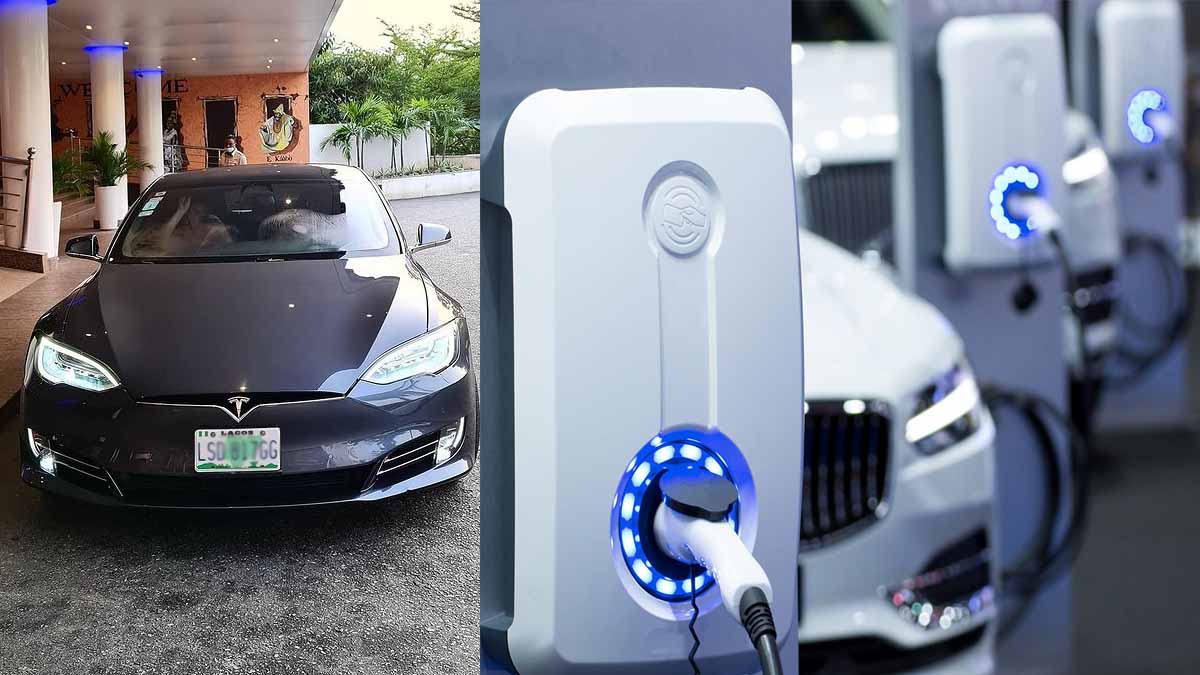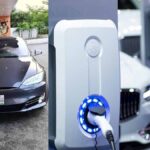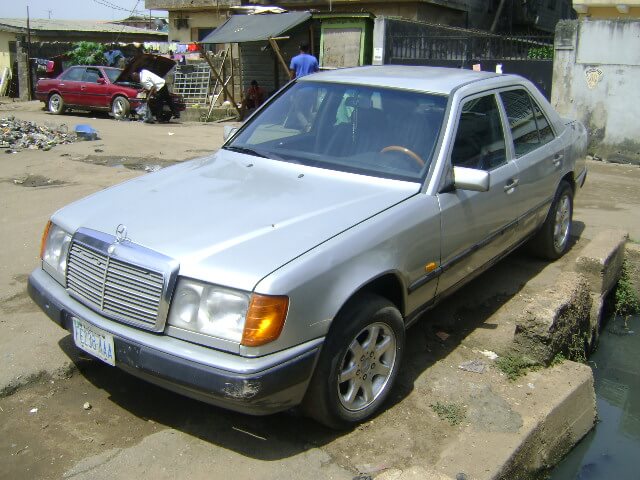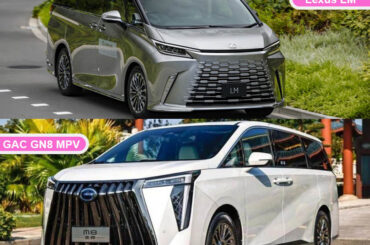Introduction
Nigeria is fast adopting electric vehicles like other nations of the earth. Just recently, Nigeria launched its own first locally built electric car, the Hyundai-Kona made by Stallion Motors. In fact, Nigeria is already at the pilot phase of installing charging stations in certain parts of the country. For instance, on 8th April 2021, the Nigeria Automotive Design and Development Council (NADDC) inaugurated the first Electric Vehicle Charging Station in Nigeria, in Sokoto State.
Table of Contents
Electric vehicles (EVs) have a battery instead of a gasoline tank, and an electric motor instead of an internal combustion engine. Plug-in hybrid electric vehicles are a combination of gasoline and electric vehicles, so they have a battery, an electric motor, a gasoline tank, and an internal combustion engine. It uses both gasoline and electricity as fuel sources. Seeing that electric cars are here to stay, it’s important you learn how best to use your EV in a country like Nigeria. First of all, let’s begin with the major components of an electric car.
Major Components Of An Electric Vehicle
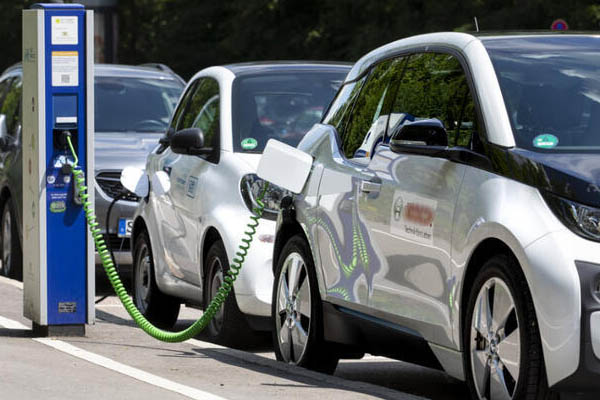
Battery:
The battery is almost the most important part of an electric vehicle. Power stored in the batteries is what energizes the car’s components and allows it to commute it’s riders from one place to another. A battery pack is made up of a number of cells that are grouped into modules. Current EV batteries are lithium based. These have a very low rate of discharge.
Charge Port
Since batteries need to be charged, it becomes essential that there is a charging port. The charge Port allows the vehicle to connect to an external power supply in order to charge the battery.
DC/DC Converter:
This device converts higher-voltage DC power from the traction battery pack to the lower-voltage DC power needed to run vehicle accessories and recharge the auxiliary battery.
Charger
The incoming AC electricity supplied via the charge port is converted to DC power for charging the battery using the Electric vehicle charger. It also monitors battery characteristics such as voltage, current, temperature, and state of charge while charging the pack. Most EVs can be charged with a standard 120 V outlet. To charge the vehicle more quickly, you may want to install a dedicated 240 V outlet or charging system.
Electric Motor
Rather than use a manual or automatic transmission as peculiar to gasoline-powered cars, an electric motor drives power to the wheels in an electric vehicle.
Transmission (Electric):
The transmission transfers mechanical power from the electric traction motor to drive the wheels.
Power Electronics Controller
The Power electronics controller is an important feature of electric cars. You can call it the brain of Electric vehicle. It’s function is to manage the flow of electricity generated by the batteries, regulate the Electric motors as it sends power to the wheels and the torque it produces.
Thermal System (Cooling)
Overheating bears potential damage to the working system of a car, hence a cooling system is essential. The thermal system ensures optimum temperature range is maintained on the engine, electric motor, power electronics, and other components.
How To Use An Electric Vehicle
Riding an electric vehicle works on similar principles like gasoline-powered cars. Electric cars are more advanced, they seem almost like automatic cars. When you place the vehicle in gear and press on the accelerator pedal these things happen in an electric vehicle:
- Power is converted from the DC battery to AC for the electric motor
- The accelerator pedal sends a signal to the controller which adjusts the vehicle’s speed by changing the frequency of the AC power from the inverter to the motor
- The motor connects and turns the wheels through a cog
- When the brakes are pressed or the car is decelerating, the motor becomes an alternator and produces power, which is sent back to the battery
Charging An Electric Vehicle
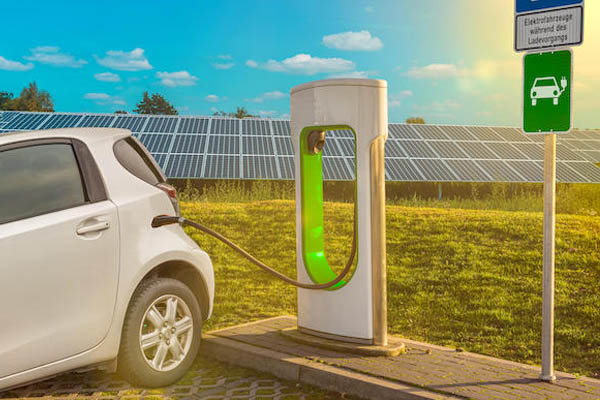
Charging an electric vehicle is the most important activity you have to engage in if you want to enjoy your EV. If you are out of charge, your car won’t move, and hence you are stuck. Public charging stations are not yet rampant in Nigeria compared to other parts of the world; you can make available private charging options for yourself.
There are three major levels of charging you can employ, however, the first two are easily accessible in Nigeria.
Charging using the standard 3-Pin connector or Type G socket
This charging system is actually the slowest, but it is very cost-efficient considering Nigeria’s electricity. This option is better enjoyed if you live in an area with sufficient light of about 12 hours, especially at night. This option involves you making use of the standard 3-point electric connector and your standard 240V type G electric socket.
Charging using a Dedicated Connector Cable
This charging option is sufficient faster than level 1, as it’s able to fully charge a dead battery in about 3-4 hours making use of fast connectors with power ratings ranging from 7 kW to 22 kW.
AC/DC Rapid Charge
This is the fastest charging option available which is able to fully charge your car battery within 45mins to one hour. This option utilizes rapid charges with a power rating of 50kW for the DC rapid chargers and 43kW for the AC rapid charger. This charging option is best suitable for public charging stations.
Maintenance
Cost of maintaining electric cars in Nigeria is currently expensive. This is because most of Nigerian mechanics are yet unskilled in maintaining an electric car. In addition, spare parts are not readily available. So, if you own an electric car, you might need to ship in for whatever spare parts you need.
Nonetheless, you will employ these basic tips to increase the longevity and efficiency of your electric car:
- Ensure you charge with a good and stable power supply.
- Follow every guide and instructions in the owner’s manual.
- Don’t ride your electricity on a bad road or terrain as this may cause damage to the batteries.
CONCLUSION
While there are only a few electric cars available in Nigeria at the moment, having knowledge of the nuggets described in this article will help you know how to use your electric car in Nigeria.
Have 1 million naira and above to Buy or Sell Cars In Nigeria? Check carlots.ng
All rights reserved. Reproduction, publication, broadcasting, rewriting, or redistribution of this material and other digital content on carmart.ng is strictly prohibited without prior express written permission from Carmart Nigeria - Contact: [email protected]

